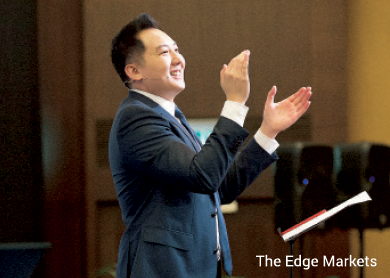
Wealth Dragons co-founder John Lee advocates wealth building through property investing and forex trading. In the final part of the two-part series, he shares with Personal Wealth about alternative property financing methods and generational attitudes towards wealth.
WHILE alternative financing methods can be a viable option for those who are unable to get bank financing, investors should note the pros and cons of each method.
Seller financing takes place when the owner himself provides the financing for the purchase of his property. In doing so, he takes on the role of the bank or lender. The buyer and seller typically sign a promissory note stating the financing terms and conditions, including the repayment schedule, interest rates and payment default consequences.
This method is good for buyers who might not qualify for a housing loan. It is a faster process as there are no bank fees or charges. The down payment can also be negotiated with the seller. The downside, however, is that the seller might impose a higher interest rate than the banks.
Owners who have difficulty selling their property might use this method of financing to make the sale more attractive. But they cannot hold a mortgage on the property and run the risk of the buyer defaulting on payments.
With a lease option, there are two components. One is a lease, where investors or potential buyers can rent out the seller’s property to other tenants. The other is an option, where investors can exercise the right but not the obligation to buy the property at a specified price within a particular time frame. Investors can use one or the other component, or both.
According to John Lee, co-founder of Wealth Dragons, this is done by investors or buyers when there is an expectation that the price of the property will rise over time. The idea is that buyers will profit upon purchase if the property value increases after the lease is up.
“On the seller’s end, sometimes the property is worth more than what it is currently priced at. So, if you can predict that property prices will decrease, [sellers might opt for a lease option],” Lee says.
“The benefit for the seller is that if he is in a negative equity situation [where the asset is priced less than what it is worth]. He can walk away from the sale without having to go into debt.”
The second benefit, he adds, is if the seller does not want the hassle of dealing with or renting property to tenants. “Investors will put tenants in the property to monetise it. Let’s say your mortgage payments are RM5,000, an investor will get a tenant and charge maybe RM8,000. When the investor gets the RM8,000, the investor will pay the seller RM5,000 for the mortgage payment and collects the rest as rent.”
Investors should note that while this can be a legal process, it is not regulated in the UK.
Attitudes towards wealth
The son of migrant parents from Hong Kong, John Lee was born and raised in the UK. He grew up around people with different attitudes towards wealth. The Chinese view he grew up with was that wealth does not come without hard work, whereas in Western culture, some view wealth in a negative light.
“Money is the root of all evil is a saying, right? [Society is] more laidback in the UK, for example. People just make enough money to be comfortable. But in Asia, there is a drive and people are proactive,” Lee says.
“My parents came to England and opened a Chinese takeaway [restaurant]. Their view was that if you want to make money, work hard and you will be successful. Also, in Eastern culture, you save. But in the West, you spend what you have and live off credit.”
Although the advice he was given growing up was to save money, buy a house and pay off the loan, he says paying off one’s debt is the worst decision one can make.
“There are a lot of people who are equity rich but cash poor. Let’s say someone has been paying off his loan for the last 25 years, so he has £200,000 worth of equity in his house. But the equity is doing nothing for him,” says Lee, who reckons he could get better returns if the money was invested elsewhere.
In observing wealth trends, Lee expects to see more billionaires created over the next decade, and more people using less traditional methods to build their wealth, like starting a business.
“When you talk about trends, people are now more open to creating a business for themselves. They are sick of their jobs and not having a choice,” he observes.
“I see more and more people starting passion businesses. We are going to see more entrepreneurs than ever before because technology allows us to do so. There is going to be a lot more online businesses. It is about being creative. There is never a lack of resources [online].”
Lee’s advice for holistic wealth building goes beyond business and investments. He recommends apportioning your income five ways, beginning with investing in your own education.
“[Invest in] your education to grow yourself. I spend at least 10% of my income on that. I still go to seminars and [seek consultation from experts]. The second [portion of your income] is for living expenses.
Then, [allocate] a percentage for giving. If you give more, you will get more,” he says.
“Another is [putting your income in] a long-term savings account for a rainy day. And the last portion is for your investments.”
This article first appeared in Personal Wealth, The Edge Malaysia Weekly, on June 1 - 7, 2015.
Save by subscribing to us for your print and/or digital copy.
P/S: The Edge is also available on Apple's AppStore and Androids' Google Play.